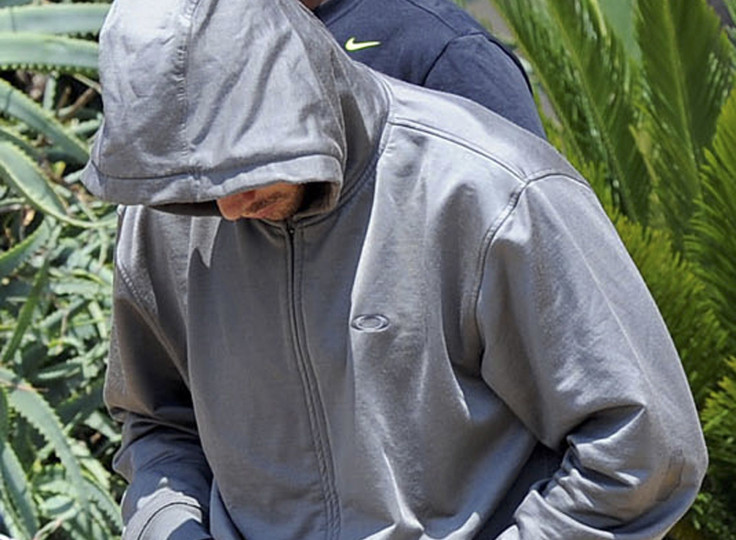Famed Olympian Oscar Pistorius Arrested For Murdering Girlfriend

Oscar Pistorius, the first double-amputee sprinter to compete in the Olympic Games, was charged with murder on Thursday after his girlfriend was shot in his home in Pretoria, South Africa.
Reeva Steenkamp, a 30-year-old model and law school graduate, was shot four times in the predawn hours in the Silverlakes complex, which is protected by high walls and razor wire. Pistorius and Steenkamp were the only reported people in the home.
Pistorius was escorted by police with his head down and his face hidden by a gray hooded jacket. Investigators said there are no other suspects involved, and that a 9mm pistol had been found at the scene. According to police, Pistorius has a recent history of problems involving “allegations of a domestic nature.”
Pistorius reportedly told the police that the shooting was an accident, as he had mistaken Steenkamp for an intruder. A police spokesman stated that neighbors had heard “shouting and screaming” from the home.
The stunning news of Pistorius’s arrest has sent shockwaves throughout South Africa. The 26-year-old, known as “Blade Runner” for his carbon-fiber prosthetic legs, reached iconic status in South Africa for his achievements on the world stage in the London Olympics. He finished last in the semifinal of the 400-meter race, but earned two gold medals and one silver in the Paralympic Games.
Pistorius’s story received a great deal of attention leading up to the LondonGames. The runner, who had his legs amputated between the knees and ankles at 11 months of age, became an inspirational story for his ability to adjust to his disability.
“I didn't grow up thinking I had a disability,” he said. “I grew up thinking I had different shoes.''
Pistorius’s story grew throughout the summer of 2012. The public grew increasing aware of the disabled athlete who spent several months fighting to compete after the IAAF, the world-governing body for track and field, ruled him ineligible to compete due to his prosthetics creating a competitive advantage. After the decision was overruled by Court of Arbiration for Sport, Pistorius qualified for the Olympics in the 400 meter and 4x400 meter relay.
Though Pistorius did not receive a medal in the Olympic Games, his story left an indelible mark on the competition. He was greeted with a hero’s welcome in his return to South Africa, and his relationship with Steenkamp garnered media spotlight as a “golden couple.”
While Pistorius received a great deal of attention for overcoming difficult odds, he also made headlines for more dubious reasons.
After being overtaken in the 200-meters by Alan Oliveira, who is also a double amputee, Pistorius complained about his rival’s blades. He later apologized for the outburst.
In November, South African media reported that Pistorius was involved in an altercation with a coal mining millionaire over a woman, with Pistorius threatening to break the man’s legs. In February 2009, he crashed a speed boat with witnesses claiming he had been drinking alcoholic beverages before the accident.
In November 2011, Pistorius, a gun enthusiast, posted a photograph of himself on Twitter at a shooting range and bragged about his score.
His father, Henke, declined to comment about the arrest when contacted by The Associated Press, only saying “we all pray for guidance and strength for Oscar and the lady’s parents.”
© Copyright IBTimes 2025. All rights reserved.





















